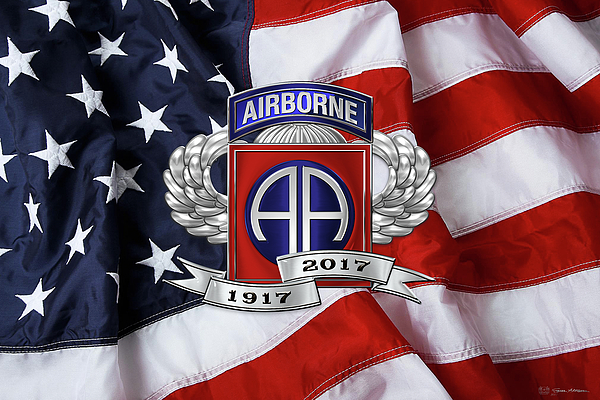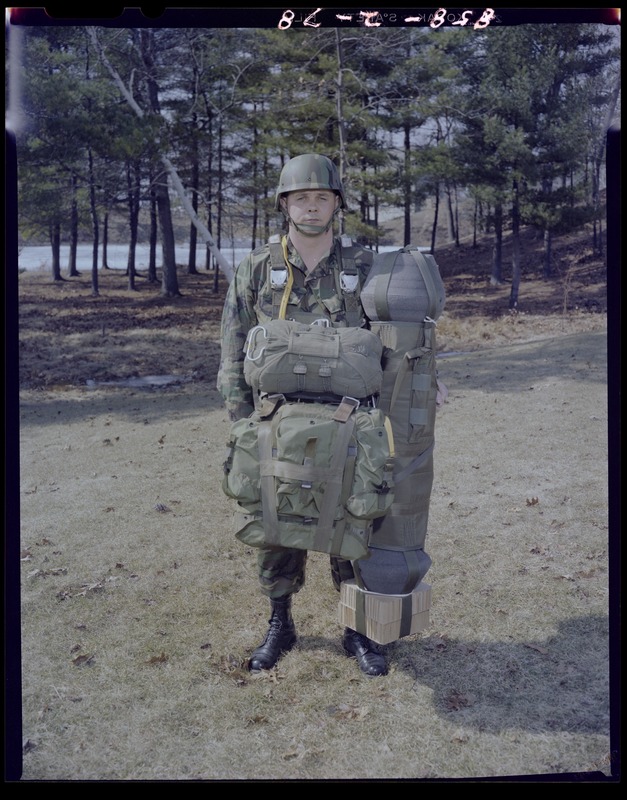In 2017 the 82nd Airborne Division celebrated its 100th anniversary. The 82nd is a great unit. I learned a lot while serving there. Lessons that I have leverage over the years. I am sharing the top leadership lessons I learned as an All-American paratrooper in the 82d Airborne Division. Last week I wrote about the first lesson – the best leaders go out the door first. Below you will find the second lesson.
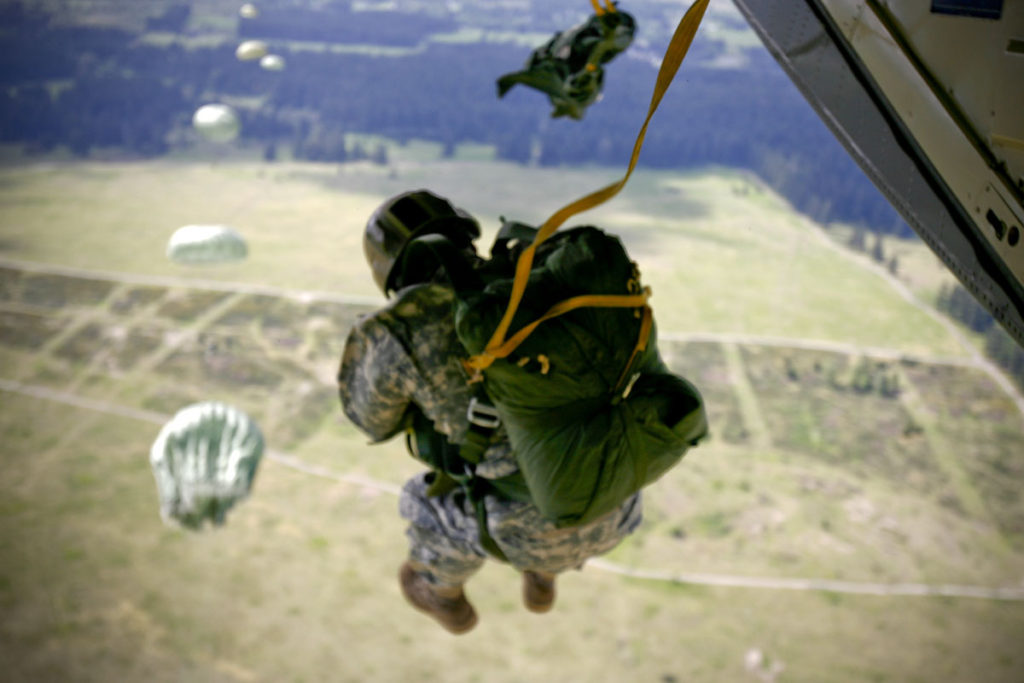
Lesson two – leaders train until it hurts
The mission of the 82nd Airborne Division is to, within 18 hours of notification, strategically deploy, conduct forcible entry parachute assault and secure key objectives for follow-on military operations in support of U.S. national interests. In other words, the division goes wherever it is needed to deal with the enemies of our country. Simply put – you have to be prepared to deploy anywhere in the world at a moment’s notice. You are constantly preparing for war. It is what you do day in, and day out. This short video shows what the 82nd does to help keep our country safe.
Take care of your paratroopers
My father served in the 82d as an Infantry Lieutenant. When I arrived at Fort Bragg, I did know what I was supposed to do. I was school trained but lacked experience. I had completed the Infantry Officer Basic Course, Ranger School, and Jumpmaster School at Fort Benning. The Army prepared me as a young officer but I lacked confidence. I called my dad seeking advice about how to be successful at Fort Bragg. My father emphasized above all else that “if you take care of your paratroopers they will take care of you”. I asked him what is the best thing you can do to take care of troops. His answer was firm – don’t coddle them. Train them hard so that they are prepared for war. You must learn to train until it hurts, and then keep going. Tough love from my dad.
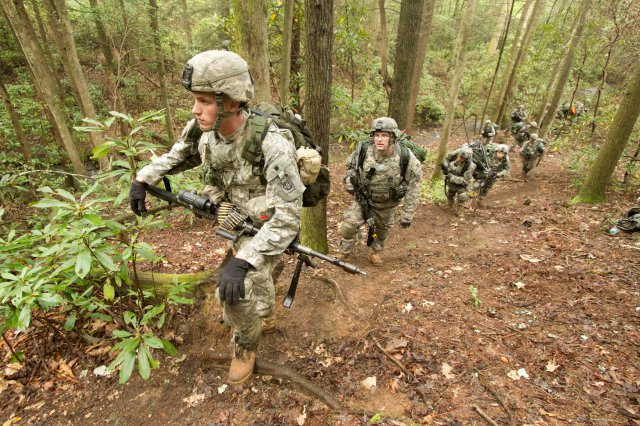
In the business world, you must take care of your team
I have been in the business world longer than I was in the military. I can say with much confidence that the same advice my father offered me as a young officer is true for the business world. If you are going to be successful as a leader you must take care of your team. If you do, they will take care of you. The opposite is also true. Neglect your team and it will fall apart.

Training my body so that I was ready for action
Training became a major emphasis for me during my time at Fort Bragg. First, I increased my physical training. Paratroopers have to be in shape. Jumping from an airplane can be physically demanding. You must be able to jump with your equipment (which weighs well over 50 pounds with a full combat load) and carry it with you wherever you go after landing. My unit conducted physical training every single morning. We did lots of push-ups, sit-ups, pull-ups, and other calisthenics. We ran a lot – miles and miles every week. The training had a specific purpose – get us into fighting shape.

Getting in the best shape of my life
I worked for one company commander who had the officers perform physical training separate from our troops. At first, I thought it was odd. Shouldn’t we train with our platoons? He said the NCOs would take care of that – he was right. What I learned is that he trained us even harder than the troops. Many mornings we would start a run without knowing how far we would go. He didn’t know either. We simply ran until he got tired…which felt like never. All this physical training worked. I ended up being in the best shape of my life, fully prepared for the physical demands of airborne operations. I did not enjoy the pain of all that physical training, but it was necessary. As this video shows, running is a tradition for everyone in the 82d Airborne Division.
What training do you need to be prepared?
What about you? As a leader what skills do you need? Are you prepared for action? If the answer is yes, then good for you. Keep pushing and training hard so that you continue to mature as a leader. If not, you better get started. Your team deserves a competent and confident leader. No one likes working for someone who does not know what they are doing. If you lack the skills to lead, your team members will start to look for other opportunities. Or, they will wait for you to fail and hope you get replaced. Neither one of these scenarios is good for you. Avoid those outcomes, and do what it takes to be an effective leader. Train yourself first.

Make the most of every training opportunity
Next, I focused on operational training for my platoon. We spent a lot of time in the field and performed many airborne operations. It is difficult to simulate what it is like to jump out of a plane fully loaded with equipment, so we practiced on a regular basis. When I served as the Division Assault CP Commo Platoon Leader my unit jumped a lot – much more than most. And when we jumped – it was almost always with all of our combat equipment. Sometimes a unit will jump with only their parachutes, not their field gear. These jumps are referred to as “Hollywood” jumps.

Train as you fight whenever possible
“Hollywood” jumps are worthwhile training. But, as you would imagine, they are much easier than combat equipment jumps. My platoon jumped with our equipment all the time because I wanted to make sure they could handle the heavy loads we had to carry. The more practice the better was my approach. Occasionally I would hear grumbles from my platoon, but all that training paid big dividends when we performed full-scale airborne operations. My platoon was always prepared and performed magnificently when it counted. Tough love pays off.
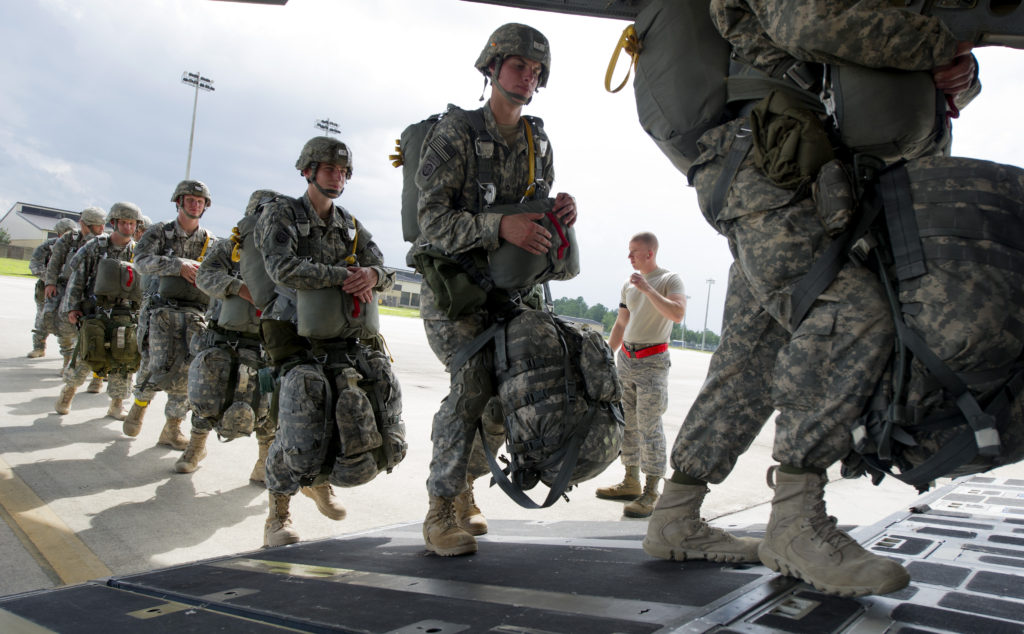
Are you training your team for success?
Do you take every opportunity that you have to train your team? It is easy to simply go through the motions. It is more difficult to train your team whenever you get a chance. They may moan and groan about it, but their performance will improve over time. No one gets better by thinking about what it takes to improve. You get better with practice, lots and lots of practice. To me, training makes a huge difference between success and failure. Good leaders train their teams so that are always improving, preparing for the next big challenge. Bad leaders do not. They let their team become lazy and complacent. Don’t be that kind of leader.
I fear not the man who has practiced 10,000 kicks once, but I fear the man who has practiced one kick 10,000 times.
Bruce Lee
Be sure to push yourself and the envelope
I pushed the envelope when it came to the equipment we used. We would experiment with our gear to try and get the best performance possible. Once I remember that we were having trouble getting a strong connection with our satellite radios, so we decided to jump with a much larger antenna than normal. The larger antenna would not fit into a normal rucksack or equipment bag. We had to pack it inside a Dragon Missile Jump Pack (DMJP). That meant somebody had to jump the DMJP. Several of us went through the special training required to jump this piece of equipment. In case you are not familiar with what the DMJP looks like – there is a picture below. It is a big piece of equipment, and awkward as hell to jump.
The dreaded dragon missile jump pack
Well, it came time for our next airborne operation and it was decided we would jump the larger antenna. I volunteered to jump the DMJP since leaders go out the door first. Man oh man was that jump an adventure. I immediately went into a rapid spin after exiting the aircraft door. My risers were twisted all the way down to my neck. I bicycle kicked and pulled at my risers to clear the twists. That step seemed to take forever. I almost panicked.

I could not tell how high off the ground I was
I decided to lower my rucksack and then the DMJP to avoid landing with it which would have been painful. When the DMJP reached the end of my lowering line I started oscillating more than normal. Swinging back and forth like a pendulum – not good for landing. I heard my equipment reach the ground. I hit next. Ugly landing – hit like a ton of bricks. Damn that hurt. Good news – the antenna worked well and the operation was successful. Bad news – I was sore for the next week. That landing hurt.
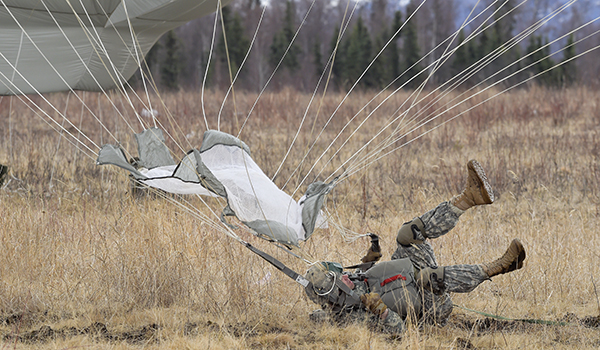
You set the example as a leader
Afterward several of my troops asked me about the jump. How did it go? I lied and told them that it went fine and the landing did not hurt much. Why would I stretch the truth…because I had been taught to train until it hurts, and then keep going. What can you learn from this leadership lesson? Training counts and makes a big difference. Figure out what kind of training you need to be successful, and then get after it. One final thought – don’t jump the DMJP. It sucks – trust me.
ATW! is designed to make you a better leader
I hope you join me on this journey to raise up the next generation of leaders. The world is in desperate need of more great leaders. Women and men who lead with confidence, clarity, and creativity. It’s time to become the leader that your world needs. Let’s go All The Way!
